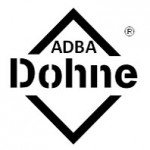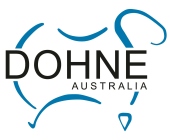Denbarker Dohne move bearing fruit
By BOBBIE HINKLEY – Farm Weekly
WHILE lamb and strawberries don’t necessarily agree on a plate, they go hand-in-hand on Norm and Beate Handasyde’s Denbarker farm.
The farm is home to the Amuri Fruit company, which plants and reaps the rewards of 10 hectares of Albion and San Andreas strawberries each year, and also to a flock of 2000 mated Dohnes. Before the Handasyde family took on the farm in the 1970s it was a sheep and cattle block.
But Norm’s upbringing on a fruit farm not too far away enticed him to follow in his father’s footsteps by producing fruit, as well as lamb for the prime lamb market. The farm was initially stocked with Merinos and this continued for a very long time using genetics from Darrel, Val, Murray and Lorraine Drage’s family-run Amuri Creek Merino stud, down the road.
After the 2002 purchase of Amuri Creek’s Merino lines by the already-established Rangeview Merino stud at Darkan and the Drage family’s shift to kick off the Amuri Creek Dohne stud east of Tunney, Norm made the decision to follow the Drage family’s journey and breeding objectives by following suit. Norm and Beate slowly moved across to Amuri Creek Dohnes before the stud was sold to Trenton and Rachel Browne, Nyabing, to be incorporated into their Chirniminup Dohne operation. Norm and Beate have continued to stick with the bloodlines and purchase their rams from Chirniminup each year.
The Handasydes use Dohnes to keenly focus on lamb production, rather than wool. And while Norm says he has stuck with the Dohne breed partly because it has some but not enough wool, it still covers the cost of shearing plus a little extra.
In saying that, his flock continually achieves a micron of 21 or less but Norm suspects that’s because he’s focused on a certain line of Dohnes, rather than the breed itself.
In the 10 or so years since introducing Dohnes to his property, Norm has slowly been able to breed the majority of the Merino out of his ewes and runs a mostly Dohne-based flock. The self-replacing system usually sees ewes kept for five years but the recent purchase of some more hectares means there’s a need to hold onto numbers to fulfill the business’s new stocking requirements. Last year the Handasydes didn’t cull any ewes on the basis of their age.
Denbarker fruit and sheep producer Norm Handasyde.
“We’ve bought an exbluegum farm just a few kilometres from the home,” Norm said. “We’ve cleaned it up and are putting it back in with oat crops with the view to running some sheep down there eventually.
“At this point it will need to be strategically managed utilising some crop and some pastures – we can’t crop everything because it gets too wet.” With that in mind, this year Norm is running about 1700 ewes and 300-odd mated lambs which are the progeny of a Dohne mother and New Zealand Greeline composite ram.
The lambs were kept back last winter and lotfed prior to mating and the youngest is about 14 months. “When wool collapsed in the mid-1980s sheep were worth no more than 50 cents a head,” he said. “We hung on and hung on hoping and praying that it would get better. “At some point we just gave up and moved into producing a crossbred line too.
“Lotfeeding the ewe lambs seemed to be a waste of time but even though we haven’t marked their lambs yet there seems to be plenty of twins out in the paddock which is very encouraging.” Norm and Beate put about 500 Dohne ewes into their crossbred program and the Dohne’s quick growth rates enable lambs to be turned off and sold early. The same can be said for the rest of the Dohne operation – anything that isn’t kept back for breeding is sold as a lamb.
The Handasydes can also utilise their feedlot to finish lambs throughout the summer. Norm said the cheapest lamb to produce is one which comes off pasture and last spring other producers in his area decided to sell off their lambs early even though they were of a lighter condition because the price wasn’t conducive to lotfeeding or finishing them.
The Handasydes’ lambs are sold directly to Fletchers, due to the fact Norm isn’t a supporter of the saleyard system and his local stock agent tracks down the best returns before signing any contract.
Norm also attributes the farm’s growing lambing percentages to Chirniminup’s Dohnes. He said a good lambing percentage prior to the introduction of Dohnes was about 90pc – now it’s closer to 120pc.
“That has been so important for us especially given that we look to the lamb market for our income,” Norm said. “It’s all about the numbers on the ground as well as the quality of the product.” Rams are put into their ewe mobs in mid-December and the youngest of the ewes are given the benefit of a late mating.
When buying his rams from the annual Chirniminup catalogue, Norm looks for sires that have a wool type suitable for the Denbarker region’s yearly 700mm rainfall average as well as good growth rates. “It’s one of my main focuses,” Norm said. “Despite the fact we’ve received less than the average rainfall in recent years it still does get pretty wet.
“They are relatively easy to maintain given their bare breech but it’s still important to breed the kind of sheep that can handle this environment with ease.” Norm said the season for sheep at Denbarker has been really good with a fairly wet April leading to an easy autumn season and lambing for his ewes. The Handasydes will continue to keep more ewe lambs back this year in order to build flock numbers.
Strawberry picking season kicks off in October for eight months and fruit will be produced and picked through to the middle of May. Norm said busy periods on the farm are manageable and both components of the enterprise are juggled due to the Dohnes’ easy care and adaptable nature.
Norm and Beate Handasyde’s Denbarker-based Dohne flock continues to boost the farm enterprise’s lambing percentage by producing increasing numbers of twins each season.













